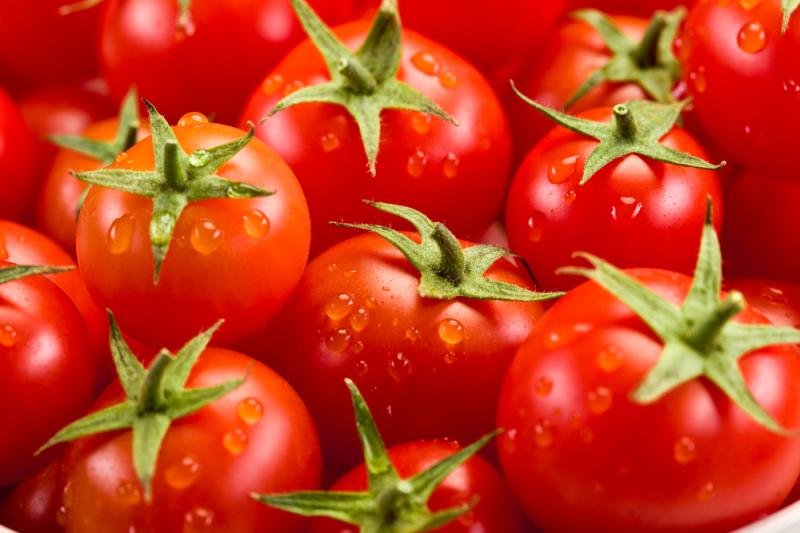
Dietary consumption of tomatoes confers protection against the development of hepatocellular carcinoma (HCC) that is independent of lycopene intake, and the beneficial effect appears to be pronounced in individuals without chronic hepatitis B virus (HBV) infection, as shown in a recent Singapore study.
“These results support the notion that tomato intake may be beneficial in reducing risk of non-HBV related HCC, which is directly relevant to the U.S. where high prevalence of nonalcoholic fatty liver disease (NAFLD) is observed to be associated with increasing rate of HCC,” according to the researchers.
The current analysis included 63,257 Chinese adults participating in the Singapore Chinese Health Study, among whom 561 developed HCC over a mean follow-up of 17.6 years for 61,321 participants. Median age at diagnosis was 71 years. Usual diet was evaluated using a validated semi-quantitative food frequency questionnaire.
Individuals in the highest vs lowest intake quartile of tomato were younger, more likely to be men, nonsmokers, moderate alcohol drinkers and physically more active, and had a lower prevalence of diabetes. They also had higher levels of total energy and lycopene intake.
On multivariable Cox proportional hazard regression analysis, higher tomato intake showed a protective association with the risk of HCC (ptrend<0.001). The hazard ratios associated with second, third and fourth quartiles of intake were 0.70 (95 percent confidence interval [CI],0.56–0.88), 0.73 (95 percent CI, 0.58–0.92) and 0.63 (95 percent CI, 0.49–0.81), respectively, relative to the lowest intake quartile. This protective benefit was pronounced in nondiabetic participants (ptrend<0.001) and not in those with diabetes (ptrend=0.38). [Cancer Epidemiol Biomarkers Prev 2020;doi:10.1158/1055-9965.EPI-20-0051]
On further analysis, higher levels of tomato consumption also conferred protection against HCC among HBsAg-negative individuals (ptrend=0.03). The odds ratios associated with the second, third and fourth quartiles of intake were 0.56 (95 percent CI, 0.30–1.02), 0.54 (95 percent CI, 0.30–0.96) and 0.51 (95 percent CI, 0.28–0.94), respectively, compared with first quartile.
No association was found between lycopene intake and HCC risk (ptrend=0.54).
“To our knowledge, the current analysis is the first effort to evaluate the association between tomato intake and HCC risk. This association, however, has been reported with the risk of several other cancer types including breast cancer in a case-control study of premenopausal women in Korea, cancer of the upper aerodigestive tract (including oral cavity, esophagus, larynx and pharynx) in a case-control study in Uruguay, and prostate cancer in a prospective cohort in the U.S.,” according to the researchers. [Int J Vitam Nutr 2007;77:130-141; Oral Oncol 2000;36:47-53; J Natl Cancer Inst 2002;94:391-398]
Experimental animal studies suggest that consumption of whole tomatoes, rather than lycopene, yields protective benefit against liver injury and HCC development in rodents. “Our study results are consistent with these experimental studies,” which point out that tomatoes may help fight the promoting effect of alcohol and high-fat diet on carcinogenesis, the researchers said. [Arch Biochem Biophys 2015;572:81-88; Int J Cancer 2010;126:1788-1796; Nature 2013;499:97-101]
“Future studies are warranted to identify possible compounds present in tomato other than lycopene. If confirmed, high consumption of tomato may be cheap and effective approach for primary prevention of HCC,” they added.